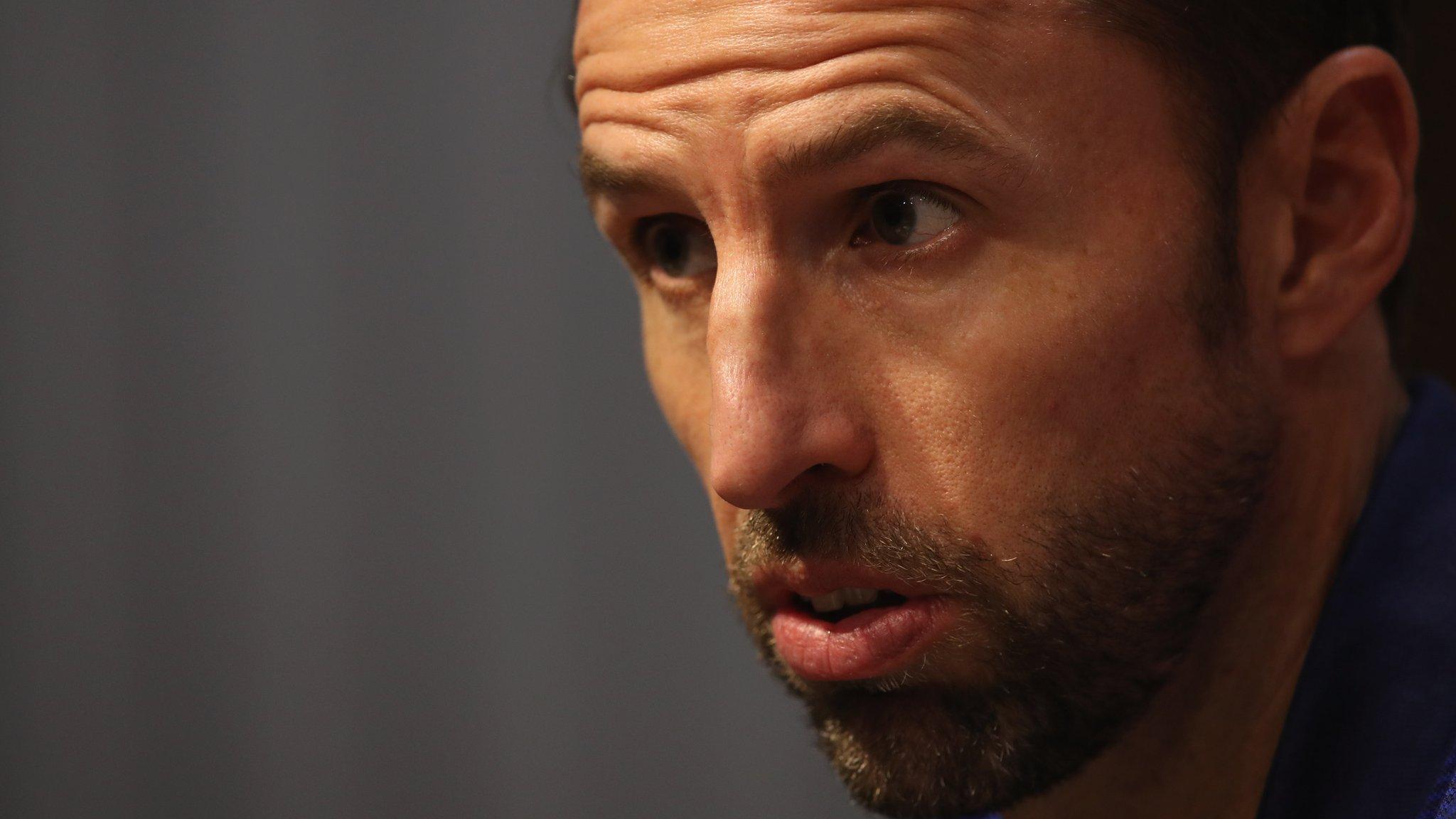What St George's Park has changed about the England set-up - Jermaine Jenas
- Published

England want to win the 2022 World Cup but what are they doing to develop young players to make that dream a reality? Match of the Day pundit Jermaine Jenas found out when he went behind the scenes at St George's Park for the Premier League Show, at 22:00 BST on Thursday on BBC Two and the BBC Sport website.
I played for England at every age group from Under-15s through to the senior team, when I was in squads with the so-called 'golden generation' that promised much but won nothing.
We remain desperate for success at international level, and finally got some last summer when our youth teams won the Under-20 World Cup and the Under-19 European Championship.
I wanted to know why they are doing so well, whether the Football Association's national football centre is making the difference - and if it could translate into trophies at senior level sometime soon.
So I went behind the scenes at St George's Park this week to see what we are equipping our players with now that we were lacking in my day.
I have to say the results were clear to see as soon as I walked through the front door.
A look inside St George's Park
It was a fascinating day, talking to England players and coaches about how the facility has helped them since it opened five years ago, and you can see it for yourself on this week's Premier League Show (at 22:00 BST on Thursday on BBC Two and the BBC Sport website).
Tottenham striker Harry Kane and Liverpool defender Joe Gomez spoke to me about what it is like coming through the system now, and England Under-21 coach Aidy Boothroyd explained what it is like trying to implement it.
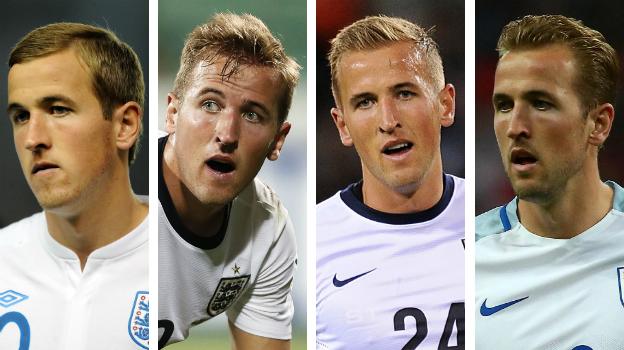
(l-r) Harry Kane played for England at Under-19, Under-20 and U-21 level before making his full debut in March 2015. He had leave Tottenham on loan to get first-team opportunities when he was a teenager
As you will see on the programme, the lack of first-team opportunities for English players in the Premier League remains a huge issue that the Football Association is trying to tackle.
But, otherwise, a lot has changed since my day for young players coming through - and mostly for the better.
When I was captain but did not know any of my team-mates
When I played for England youth teams, it did not really seem like there was a plan for my progress.
Back then, if you were young and you did well at your club, then you got your chance to play for the England side in your age bracket. That was the only criteria, and there was no real continuity from one age group to the next.
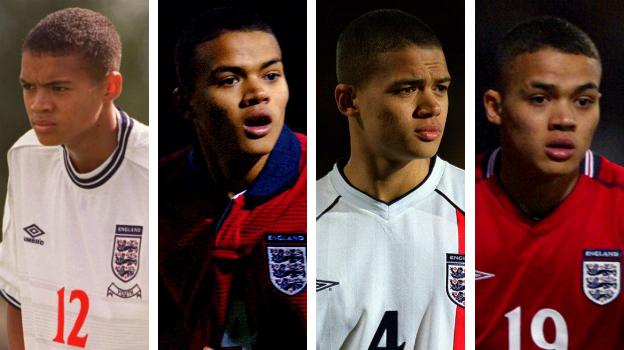
(l-r) Jenas played for England at every age group from Under-15s upwards between 1998 and 2009, and captained the Under-19, Under-20 and Under-21 teams. He made his full debut when he was 19, in 2003
Because of the way my club career was progressing very quickly, as I moved from Nottingham Forest to play in the Premier League with Newcastle, that led to some uncomfortable moments.
There were times when I would literally join up with an England team for the first time and be given the armband - it was a case of 'you are captain because you are the most high-profile player we have got'.
And when I played for, say, the Under-20s, even though I had played for all the other lower age groups, I did not know any of the other players at all because nobody else had moved up with me, and I never got the chance to change that.
It sometimes felt like a bit of a waste of time, but it seems very different now. There is a clear strategy for a start.
The focus is on bringing a group of players together for longer periods, and keeping them together - 10 of the 11 players that started the Under 20 World Cup final in June have now been bumped up to the Under-21s and are trying to integrate themselves at that level.
Highlights: England win the U20 World Cup
The same principle works with the full national side too. The senior England manager Gareth Southgate has moved Boothroyd so they are now based in the same office at St George's Park, so there is no longer that feeling of the Under-21s being a completely separate team.
For me, that was the right move. I look at a lot of the Under-21 squad and don't think they are far off the full team - as was shown by Harry Winks getting a late call-up this week - so it is important Southgate and Boothroyd are in as close contact as they are.
The little nuggets that make all the difference
Another problem in my day was that the England team never had a specific base.
We tried to create one by training at Arsenal's training ground a few times to get some continuity of staying at one place but, because Wembley was being rebuilt, we would be playing at, say, Old Trafford the following week so we would go up to Manchester United's training ground to prepare for that.
It felt like we never really had a home, but it is clear from going to St George's Park that it is giving our current players at every level a very different experience.
Royal opening for St George's Park in 2012
Walking around the complex, it felt like England have finally created a club feel which, in my time, we never had.
By that I mean everyone is together - at club level you will have the youth teams, the Under-23s, the first team and often the women's teams all using the same facility.
Everyone gets a huge benefit from that, and it is the same for England - the senior players set an example, and give younger players someone to look up to - and are also there to offer advice.
It is something Kane explained really well when I interviewed him for the programme, drawing on his own experiences as a teenager.
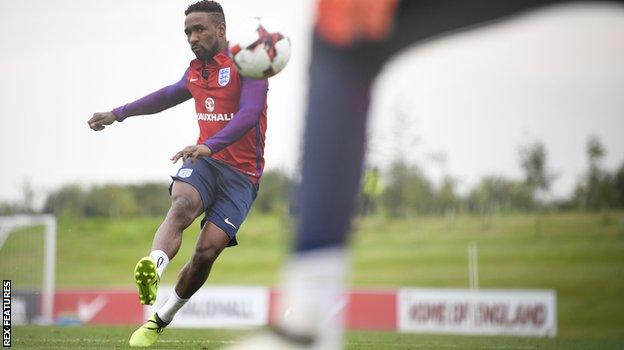
Defoe made his full England debut in 2004 and has scored 20 goals in 57 appearances. The Bournemouth striker is seventh on the all-time list of Premier League goalscorers, with 159 goals in 475 appearances
And, off camera, I had a really good conversation with my old Spurs team-mate Jermain Defoe about those responsibilities, and how he and the other senior players know they have got them.
Jermain is 34 and at the back end of his career but is still playing right at the top level and the set-up at St George's means strikers from the Under-20s or Under-21s can get close to him.
Not only can they see how he is working and what he is doing extra in training, they can grab him for a word to see what he thinks about something, or ask him for some advice because they are short of confidence, as some of them have done.
It is a golden opportunity for them, really. Those little nuggets of wisdom are the sort of things you usually only get from asking older players at your club, and they can make a big difference.
No more new faces trying to fit in
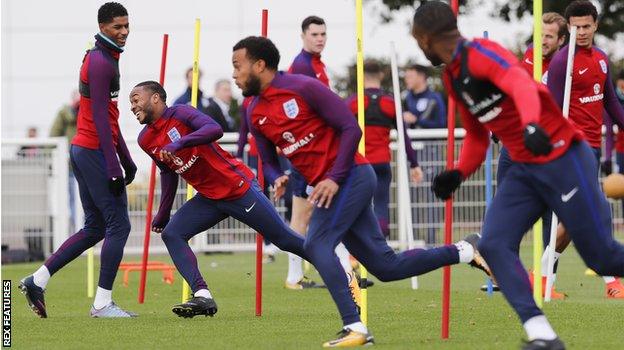
Marcus Rashford, Raheem Sterling and Ryan Bertrand in training before England's World Cup qualifier against Slovenia on Thursday
Togetherness and team spirit makes a difference at major tournaments and it is something that has supposedly held England back in the past compared to other nations.
Maybe St George's Park is going to change that and help to bring us together, because when I was there all the age groups were mixing up and hanging around with each other.
For example, I saw Raheem Sterling, who is in the senior squad, come downstairs and grab Gomez, from the Under-21s, to go and play computer games with them.
It is a small thing but it will make a difference when the call comes and a player has to make the transition to train with the senior team. There will still be pressure there and they will still have to deliver, but it is an easier step-up this way.
The first time I made a senior England squad in 2003, I was 19. I was at Newcastle and playing well but all of a sudden it was like 'Jermaine, you have been picked for England - off you go'.
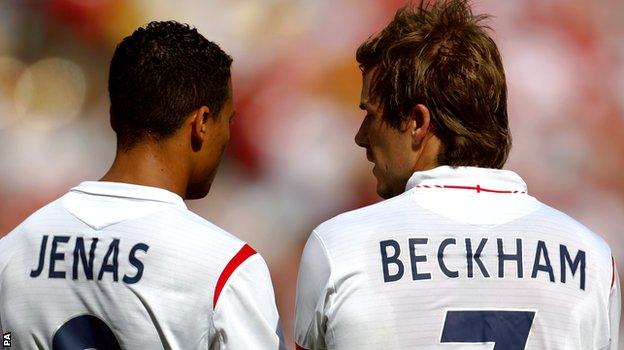
Jenas appeared in the same team as David Beckham when he made his England debut in a 3-1 defeat by Australia at Upton Park in February 2003 but did not play alongside him - Beckham came off at half-time, when Jenas was brought on. Wayne Rooney and Francis Jeffers made their England debuts in the same game
I walked into a room with people like David Beckham, Paul Scholes and Michael Owen, all players who I had watched play in a World Cup when I was at school.
I had not spoken to any of them before, and as a teenager it was pretty daunting - but then straightaway it was sink-or-swim time because I did not just have to settle in, I had to go and perform.
Had I come through the current system, I would have been seeing the senior internationals on a regular basis anyway, which kind of desensitises that whole situation of being the new face.
A lack of first-team football remains a problem
Lack of top-flight game time for youngsters is a concern - Southgate
As impressive and productive as the new set-up is, it does not solve the problem of getting our young players first-team club football. To develop, they simply have to have it.
Part of what I look into on the programme are the statistics which show how many homegrown players there are in the Premier League, and they are pretty bad.
I think if you add in the fact that, in the past, we have not had enough players going abroad to play, then it is going to have an even greater impact on how the senior England side performs.
But that is changing now, and from a young age too. Under-20 internationals like Chris Willock, Isaac Buckley-Ricketts and Kaylen Hinds are all playing abroad which will give them unbelievable experience, and something that would never have happened when I was their age.
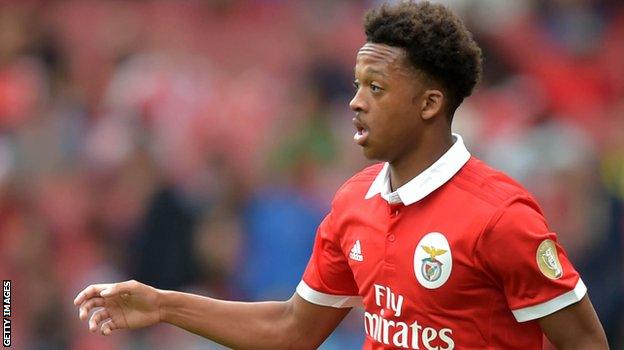
Walthamstow-born Willock, 19, left Arsenal in the summer to sign a five-year deal with Portuguese side Benfica
A big part of my conversation with Boothroyd on the show is about how the FA is trying to change things in the Premier League too - and what it thinks should happen and maybe even be enforced so our own top clubs use more of our own players.
We need to start producing better players, which would help, but we have already seen with the likes of Harry Kane and Marcus Rashford that the talent is out there, if they are given a chance.
We are taking steps - but others are making strides
I do not doubt that having a world-class facility is making a big difference, but the big question is whether it will help England win a senior tournament before the FA's stated aim of 2022.
I had heard about the digital clock in one of the coaches' rooms at St George's Park that is counting down to the 2022 Qatar World Cup, but I did not get to see it. I am quite glad I didn't, really.
It is a risky strategy because what happens when the time runs out and we have not won anything. Do you just start it again - because surely that just defeats the object?
Yes, it is a nice idea, but I would have preferred something showing the progress we are making and marking the age-group titles we have won.
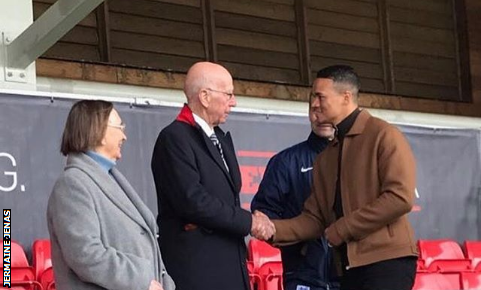
Jenas met 1966 World Cup-winner Sir Bobby Charlton when he came to St George's Park on Monday to mark his 80th birthday, which is on 11 October. There is a special documentary about the England and Manchester United legend at 22:30 BST on BBC One on Sunday
For the senior team, I don't think that win will happen at next year's World Cup - even if we reach the semi-finals there, I think that would be an unbelievable achievement for Southgate and his team.
I know the FA have bought themselves more time by targeting 2022 but I still see that as an extremely difficult task.
Yes, we are improving, but so is everyone else - and they are trying to do the same things too.
Look at France, for example, and the amount of talent they have within their ranks. They are a seriously young team who are unbelievably good, and they are only going to get better. It is the same with Brazil, who are led by Neymar.
We are taking steps, sure, but those two teams are making strides - and there are plenty of others globally.
In terms of progression, what we are doing is great and it feels like we are heading in the right direction now.
But although we are definitely moving forward as a country, I am just not sure we will be ready by the time that clock hits zero.
Jermaine Jenas was speaking to BBC Sport's Chris Bevan.
- Published3 October 2017
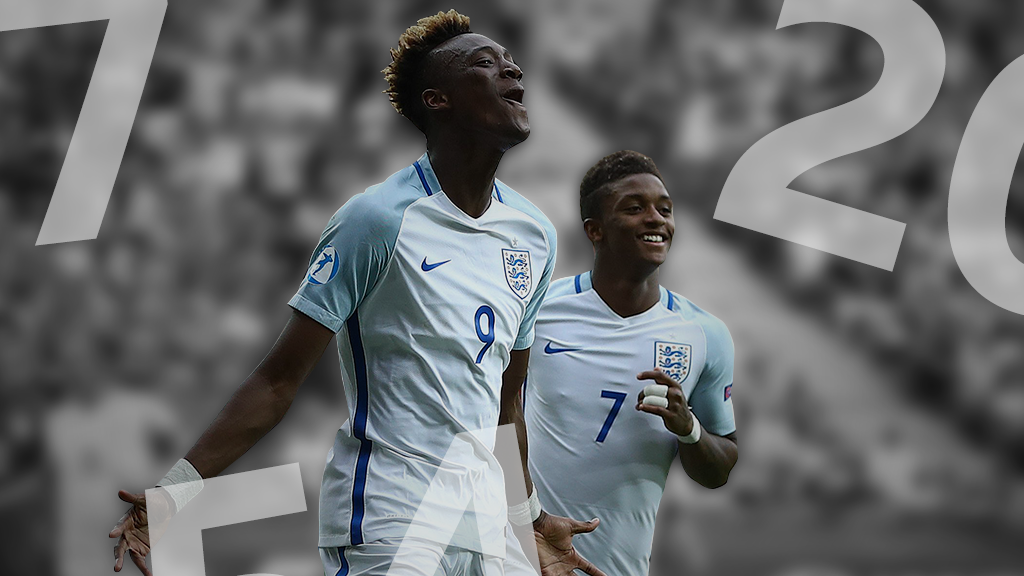
- Published5 October 2017
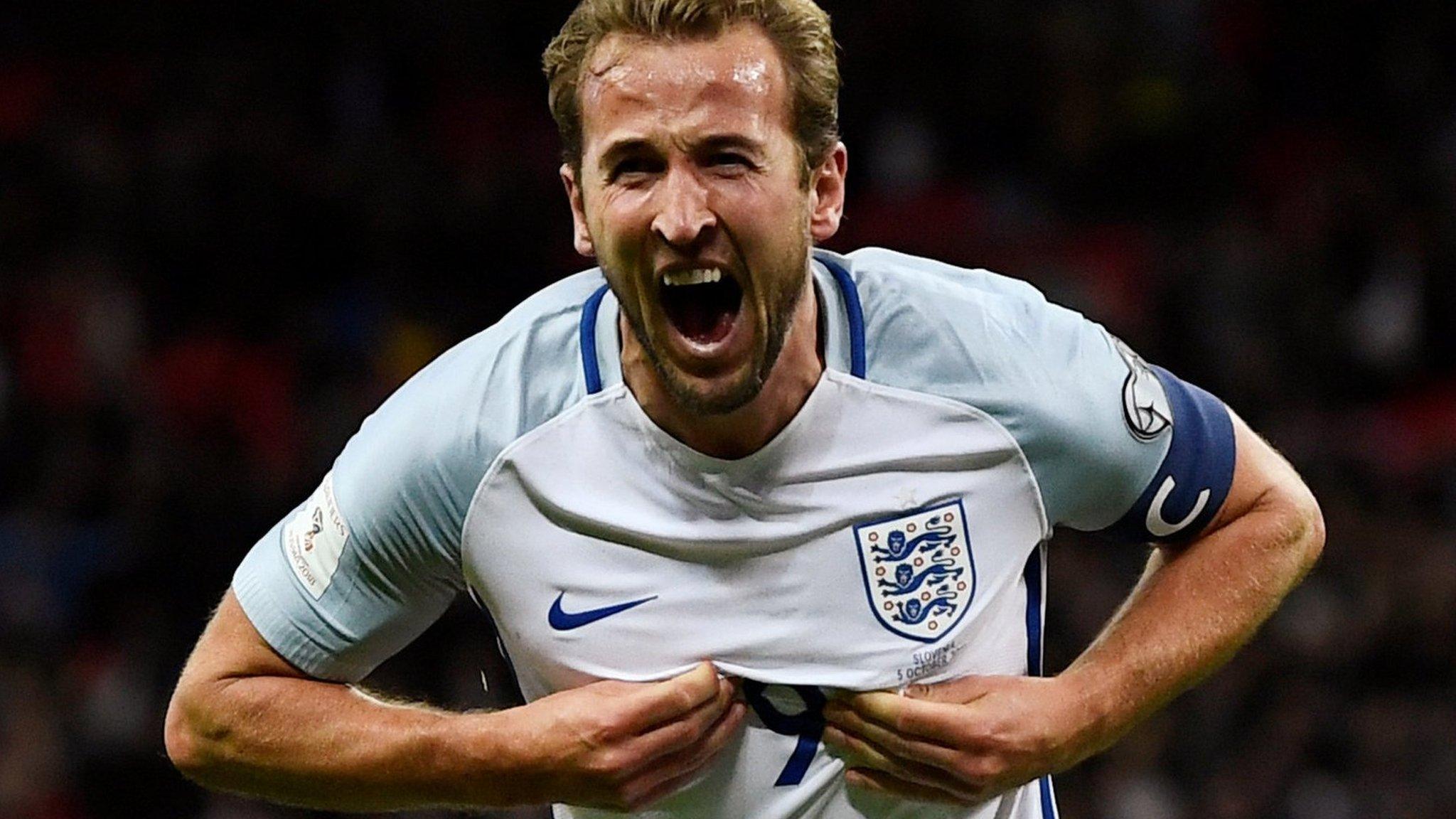
- Published4 October 2017
